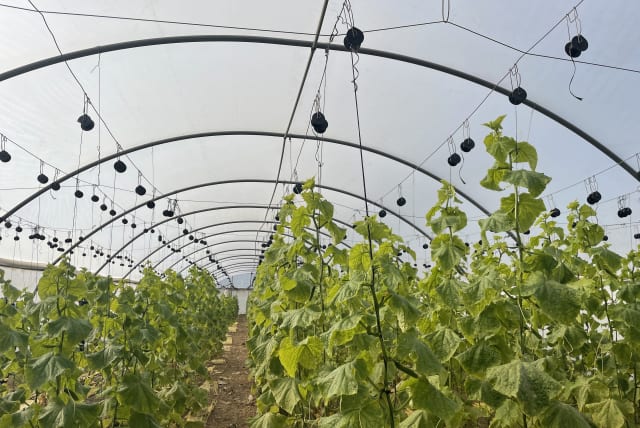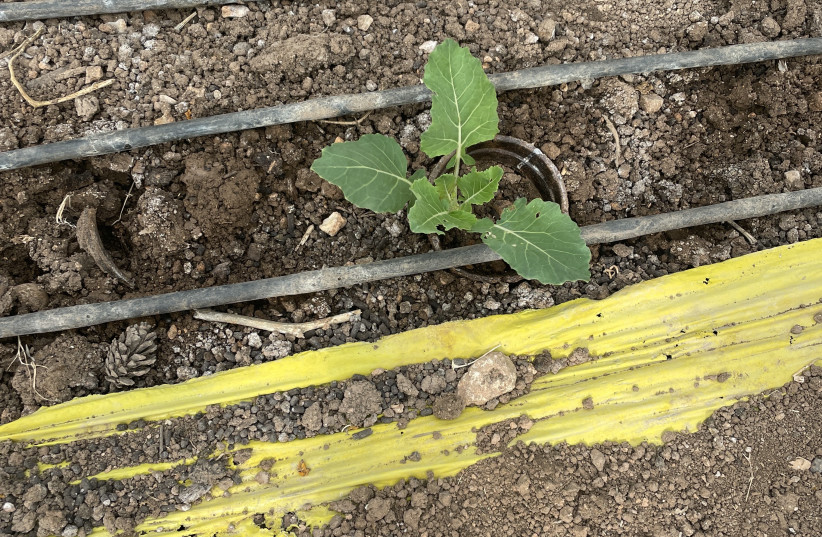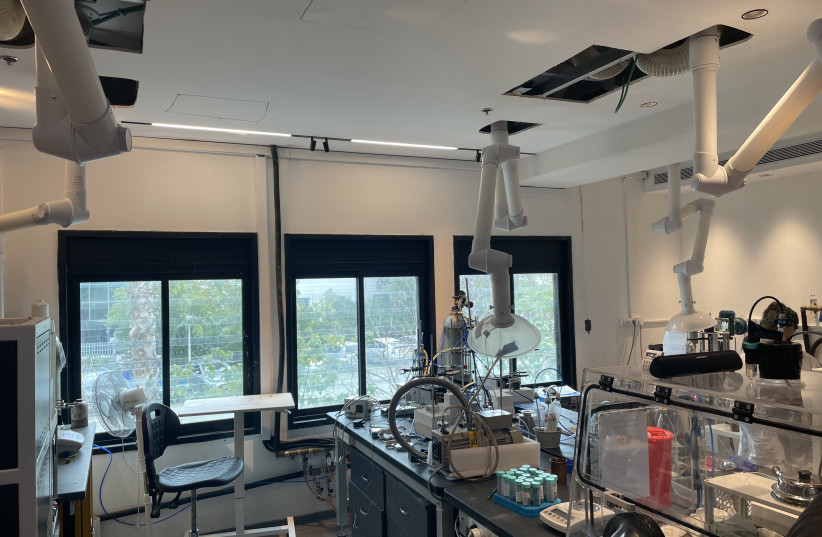Which Israeli companies are resolving climate change issues?

Given the great scale of climate change and the impending crisis facing the people of Earth, it is imperative that companies like these continue to grow and flourish.
Amid Israel’s domestic debates and the looming war in Europe, it is easy to assume that the greatest problems facing our future are in front of us. However, ask many experts and they will tell you that the looming climate threat trumps them all. For this reason, the UN has dedicated much of its resources to solving the crisis.
Thankfully, a large contingent of Israeli companies has developed innovative solutions to help solve the crisis to ensure a safe and prosperous future for people around the world.
The Magazine met some of these companies at the OurCrowd Global Investor Summit last month.
Bioplasmar
Climate tech companies tackle many industries. They can range from agriculture – where companies create tools for more sustainable farming – to CO2 reduction, a crucial element in the global war on climate change.
One company, Bioplasmar, has created a solution for a problem plaguing farmers around the world – soil degradation. Most plants today are first seeded in a plastic pot and then transferred into soil in the field. When this occurs, the soil is saturated with new elements, causing a change in temperature and other components that can damage the soil over time. To deal with the problem, Bioplasmar’s team created a biodegradable pot that can be placed directly into the soil when ready.
Made from 100% biodegradable resources, the pot disintegrates in six to 10 weeks, gradually introducing the plant into the ground and providing the soil with additional nutrients. The Moshav Aderet-based company has conducted a number of independent studies showing that its pots not only improve the quality of the soil but also allow for a much stronger and healthier crop.
Moreover, this helps to eliminate the problem of billions of plastic pots being discarded. The company is currently working on its farms in Israel, as well as in France, with production capabilities scaling for global reach.
Groundwork BioAG
Staying on the agricultural theme, Groundwork BioAG is one of the most exciting agtech companies in Israel today. Having raised $40 million from investors around the world, the Moshav Mazor-based company has created a soil supplement that assists with the mycorrhizal process.
As explained by Dan Grotsky, the co-founder and chief growth officer, “Mycorrhiza is a natural process that assists in 90% of plants, having existed for 400 million years.” The company’s solution is the only one in the world that works in this area. For this reason, the company has seen astronomic growth, now selling its products in 15 countries worldwide with offices in five of them. In total, it is working on approximately one million hectares of land and helping to feed 1.7 million people globally.
The process works by placing a small amount of their Rootella product in the soil when planting. This attaches itself to the root system, creating a symbiosis between the fungi (myco) and the plant roots (rhiza). As the current agricultural processes have destroyed the natural mycorrhiza process, Groundwork BioAG’s drought-resistant product has been a big seller, particularly in the cannabis industry.
Autonomous Pivot
ANOTHER AGTECH company the Magazine met is Autonomous Pivot. The Tel Aviv-based company has developed a solution to what is arguably the greatest climate-related issue in the Middle East – water. The company offers subscription-based services to farms for its AI-based hardware and software that assist in autonomous irrigation, fertigation and crop protection.
As a result of this technology, water usage is reduced by 30%, allowing farms to save money and become more efficient. The company also has built-in AI-based decision-making capabilities to create highly productive farming processes. It is currently working on farms in Kansas.
QD-SOL
Finding ways to create energy in both efficient and environmentally friendly ways is critical for a renewable future. QD-SOL was founded by Prof. Lilac Amirav from the Technion (Israel Institute of Technology) to revolutionize the usage of hydrogen. She explained that her company’s solution works by recreating the natural process of photosynthesis and converts that solar energy into hydrogen. QD-SOL’s “quantum green” hydrogen can be converted into energy to power the world, she said.
The company has garnered much attention, most notably with an investment by American actor Ashton Kutcher. Amirav and her team, pioneers in their field, are working hard to power a greener future.
Luminescent
Also tackling the energy sphere is Luminescent, a Tel Aviv company that has created the first isothermal heat engine. What this means is that it has a tool to convert traditional energy sources into renewable energy sources, which takes place in its closed-loop system.
Using liquid-based sources, the engine can convert anything from water to oil into renewable energy. This unique system takes fossil fuels and makes them renewable – in turn, allowing them to be emission-free.
Helios
PERHAPS ONE of the most dynamic companies the Magazine met was Helios. The company was founded as a space-focused start-up with the goal of bringing oxygen to the moon for future expeditions. While it is still conducting R&D on this technology and working with NASA on its 2025 planned Artemis mission, Helios found in the development process that it can actually produce iron in a carbon-free way.
The steel industry, which uses iron, is a large emitter of carbon into the atmosphere, accounting for 8% of the global carbon footprint. As explained by CEO Jonathan Geifman, by using only thermal energy the company can take iron ore and turn it into iron. While using thermal energy, the process emits only oxygen and not CO2. As such, it is a cleaner and less expensive way to produce iron.
Aiming to be a sustainable provider of iron to steel producers, the company is building production capabilities to enable it to provide iron on the mass scale needed to be a serious player in the industry.
Rewind
A company that is working to stop CO2 production in its tracks is Rewind. The company has come up with a simple solution to a global problem. It takes dead plants and deposits them in the Black Sea.
While it may sound absurd at first read, this process actually works. The Black Sea is unique, owing to its darkness (as its name suggests). As such, it is unable to sustain life other than small micro bacteria. This is best evidenced by shipwrecks over 1,000 years old which are nearly perfectly preserved at the bottom of the sea.
CO2 is produced in large quantities every year by dead leaves, branches and other plants that decompose and emit carbon into the atmosphere. By taking the dead organic materials and putting them in the sea, Rewind is preempting CO2 from proliferating in the air – having the potential of removing billions of tons of this harmful chemical compound per year.
CEO Ram Amar discussed his company’s solution, explaining that by placing the materials in the sea, they will just go to the bottom and decompose over thousands – if not millions – of years, eliminating the potential for harm to our atmosphere. This solution has the ability to prevent C02 from continuing to degrade the environment.
In all, it is always remarkable that Israeli companies are developing solutions to problems much larger than the small geographic region bestowed upon them. Given the great scale of climate change and the impending crisis facing the people of Earth, it is imperative that companies like those the Magazine spoke with continue to grow and flourish for the good of all humanity. ■
Jerusalem Post Store
`; document.getElementById("linkPremium").innerHTML = cont; var divWithLink = document.getElementById("premium-link"); if (divWithLink !== null && divWithLink !== 'undefined') { divWithLink.style.border = "solid 1px #cb0f3e"; divWithLink.style.textAlign = "center"; divWithLink.style.marginBottom = "15px"; divWithLink.style.marginTop = "15px"; divWithLink.style.width = "100%"; divWithLink.style.backgroundColor = "#122952"; divWithLink.style.color = "#ffffff"; divWithLink.style.lineHeight = "1.5"; } } (function (v, i) { });



